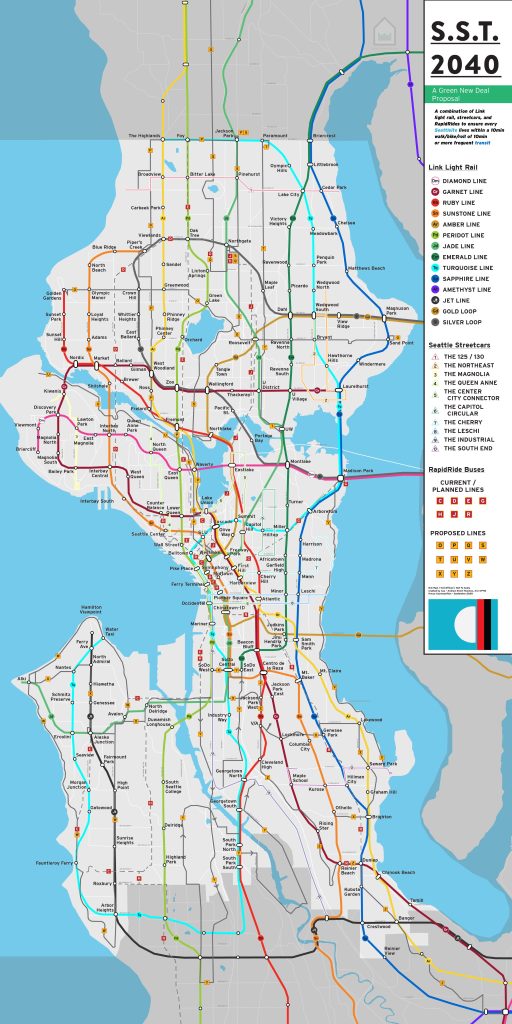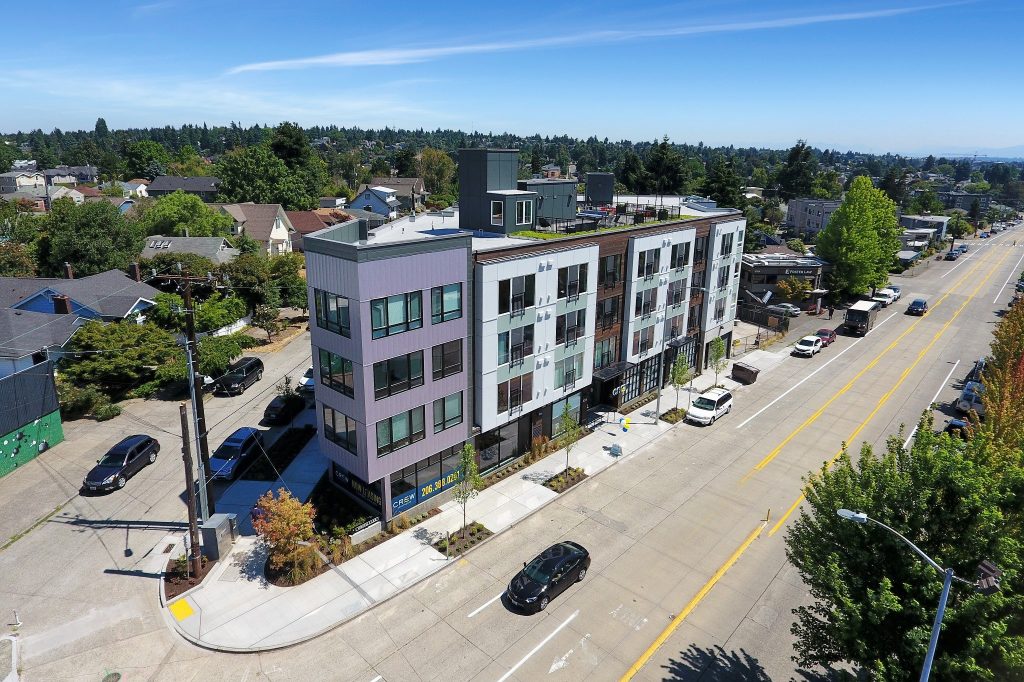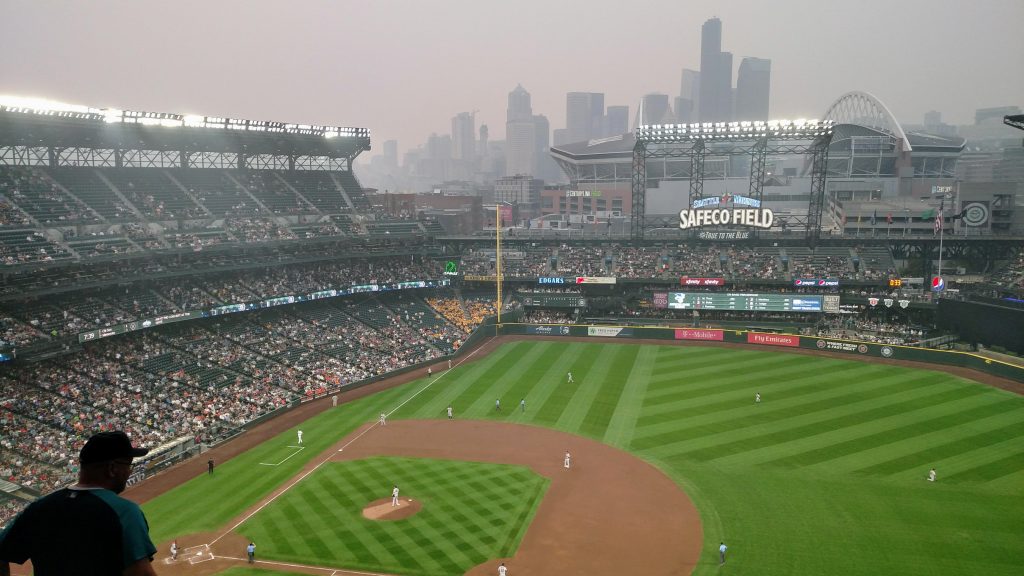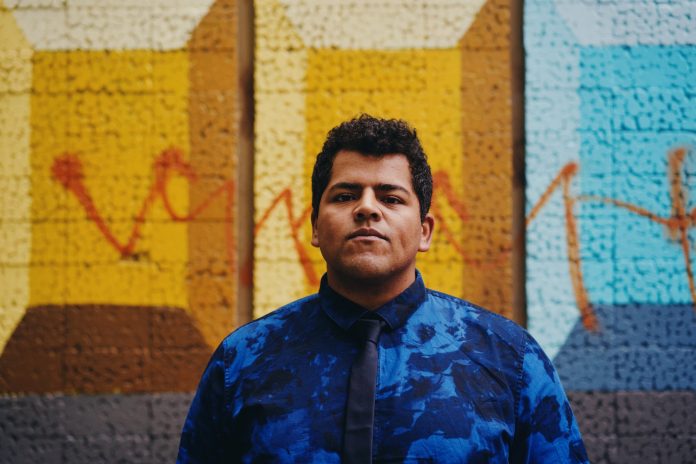In an announcement video released last week, Andrew Grant Houston introduced himself as a “queer Black and Latino architect.” He is a regular fixture on Twitter as Ace the Architect where he covered this summer’s protests and meticulously picked apart the city’s budget. He frequently switches hats, currently working as the interim policy director for Councilmember Teresa Mosqueda, sitting as a board member for Futurewise, or appearing as a housing advocate on any number of panel discussions. And now he’s running for mayor.
Houston’s top line goals for his first year in office are fairly direct. Fund the creation of 2,500 tiny homes to shelter the most vulnerable. Create a corporate income tax to double the local apprenticeships for green new jobs. Put buses back on the ballot to fully restore lost service and prepare for a bigger expansion in 2024.
That’s the what-if. Asked for an elevator pitch, Houston offers the why he should be mayor. “It’s going to take someone who has the systems-based thinking and approach to address the complex issues that we have. It is clear the leadership we’ve had in the past–whether it be a lawyer or career politician–has not solved the major crises we deal with. Given the extreme need for a massive shift in way we operate in Seattle for every community here, I believe I’m the person to bring that perspective.”
For a city that’s had its share of extreme shifts over the last few years, that may be a loaded answer. But Houston doesn’t back away from the term. “My aim becoming mayor is to break down the gatekeeping that occurs through process or through the language we use around the resources and opportunities we provide in Seattle.” In his announcement video, Houston put it more succinctly. “Simply delaying action becomes inaction. Inaction is unacceptable.”
Houston envisions a lot of action. In conversation, he brings up a long-term goal of Seattle as a forest city, where walking outside does not risk being overwhelmed by forest fire smoke, but the smell of pine and cedar. He talks about the structural needs of new community centers if we are to have services within a 15-minute walk of all residents.
Earlier this year, Houston released a series of proposals for a light rail and bus system that can only be described as audacious. The Sustainable Seattle Transit Map puts frequent transit within half-mile mile of every home in the city. It’s a view of an alternate Seattle, one where transit stops replace parking lots and people can get around easily but may not have to go as far as they think. Admittedly, the idea is extra fantastic because it would connect Ballard to Kraken games and Sounders matches without a transfer.

Sustainable Seattle Transit is a really tremendous vision, but not one arrived at lightly. As a Passive House certified architect, Houston views the final designs as a public performance capping practice, skill, and management. “Many people think I just create an idea. Thats’s maybe 10% of what I do. Most of it is project management and coordinating people.” He compares his work process to conducting an orchestra. “I’m the person that makes sure every single instrument is playing when they are supposed to, taking cues from the other instruments, and all these pieces create the sound that people enjoy.”
Houston carries that music metaphor further. “Many Seattlites are really smart and great at outlining problems. The challenge is to reverse engineer that thinking to find the solution within the cacophony of sound. That’s what I bring in my leadership.” It is a systems-based approach to hear the entire ensemble.

That leadership was formed from two directions, which Houston sees as an asset. The complex tasks before Seattle’s next mayor are “going to take someone who has the perspective of both being part of the communities most impacted by environmental degradation and knowledge and expertise within the system.”
Two “nevers” come up in Houston’s description of his history. He has never learned how to drive and he has never lived in a home that his family owned. To have a mayor with those experiences as a renter or a transit rider “would be a dramatic shift of perspective and what it means to choose to support certain ways of operating within the city,” he says.
Raised by a single mother, Houston describes his upbringing as “coming from very little.” College and professional certification did not ease those burdens, instead putting him in a position where his private practice was immediately put at risk by the Covid economy. Asthma is a complicating factor for him living during both the pandemic and the wildfires. Houston sees similar stress among many neighbors in the city. “I know people are in the same predicament. Having that dark cloud hang over me takes up so much space in my day.” Rent burdens, health issues, and continued search for work are concerns that many in governance have never had to bear.

Houston melds this personal experience with expertise about the city’s policies and procedures. There is the work in activism and professional design. Then there’s the Twitter thing. Throughout the summer and fall, Houston wrestled analysis of the city’s budget and city council hearings into the 280 character confines of tweets. Using smart language, a lot of research, and a fair number of animated gifs, he made the budget approachable. The fact that he persisted at this though the entire budget Hunger Games and did not melt down into an incoherent puddle of goo is a testament to his communications skill and a mastery of the subject. He should get a medal.
Expertise and experience prepared Houston to run for mayor. But it was this summer’s wildfires that pressed the issue. “Because of the fires this past September and the drastic need for such a massive change from what we have right now, I knew I could continue activism and face opposition from this mayor or the next one. Or I could just step in and start to fix things.”
That process to fix things isn’t going to start with ribbon cutting a new light rail system on day one. Eight years of null action on climate and housing has set the next mayor up for many of the same gaps we’re seeing in the first days of the new Biden administration. There’s no telling what the next mayor will face after these lost years.
But for Houston, that presents an opportunity. His campaign is called The Rising Tide and it is larger than just running for mayor. Beyond building up a voting base, Houston hopes to build a groundswell that will develop policies to help those most in need that will in turn help the whole community. “I am very clear on what I intend on doing. Serve in this position for eight years. Help us reduce our carbon emissions as close to zero as possible then tap out and say ‘my time is now up and someone else take the reins.’” Those reins can then be taken up by new leaders working towards climate goals and improving the lives of those most in need.
Forming in a city after a decade-long executive leadership vacuum leading to a fair amount of cynicism and despair, it’s hard not to hear such… optimism? We’ve been through a housing emergency, climate emergency, health emergency, budget cliffs, recalls, resignations, and that’s even before 2020. But Houston’s earnestness is infectious.
In his announcement video and many times during our conversation, Houston returns to the idea of commitments. The city’s commitment to protect all of its residents. The commitment he made as an architect to protect the community’s health, safety, and welfare. Meeting our commitments as a city to meet climate goals that we have set ourselves. “Let us fulfill our promises do the things that are just and we said we are going to,” Houston says.
Calling his campaign The Rising Tide emphasizes this fundamentally decent point of view and potentially Andrew Grant Houston’s entire mayoral campaign. “In many ways I want people to simply be able to wake up and not worry about making ends meet. Not have to worry about losing their home. Not have to worry about where their next meal comes from.” It’s a Seattle that keeps its commitments to everyone and itself. A city that we all hope to live in one day.
If you’d like a chance to meet Ace, he is scheduled as a monthly meetup guest on April 13th.
Ray Dubicki is a stay-at-home dad and parent-on-call for taking care of general school and neighborhood tasks around Ballard. This lets him see how urbanism works (or doesn’t) during the hours most people are locked in their office. He is an attorney and urbanist by training, with soup-to-nuts planning experience from code enforcement to university development to writing zoning ordinances. He enjoys using PowerPoint, but only because it’s no longer a weekly obligation.


